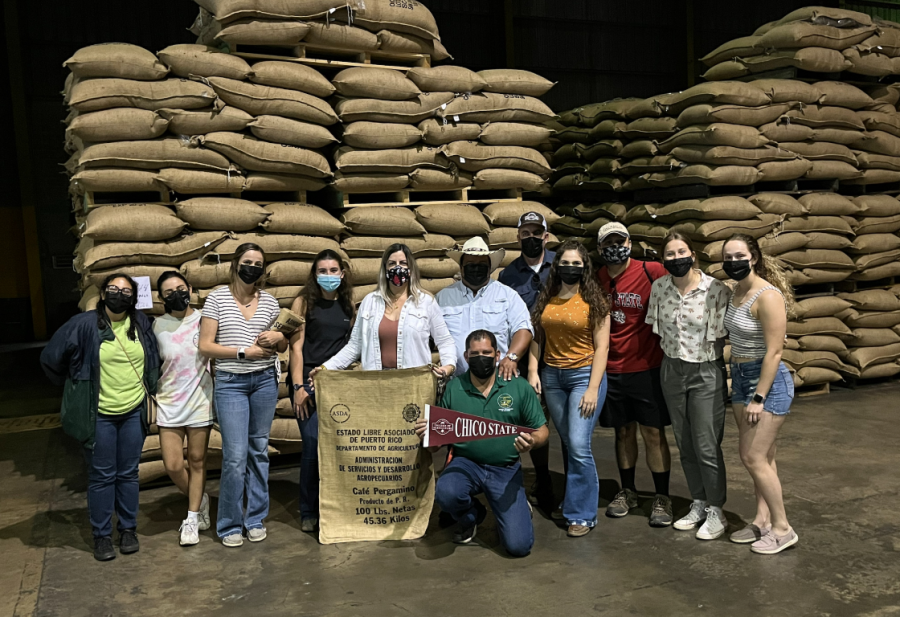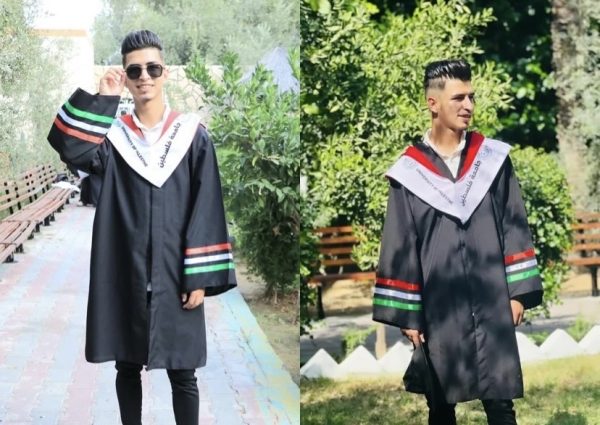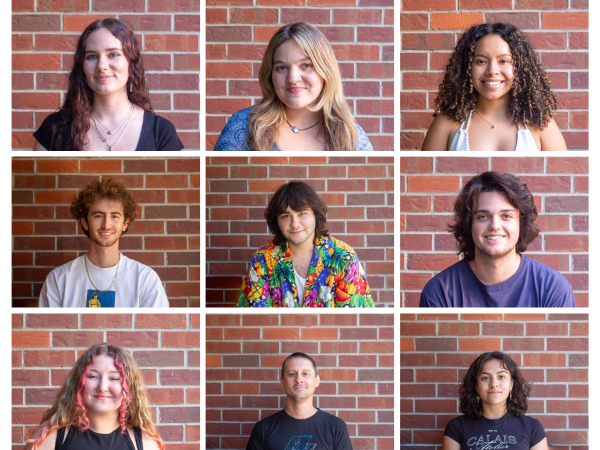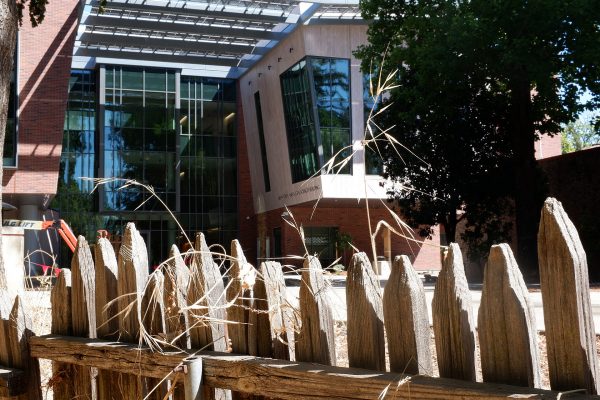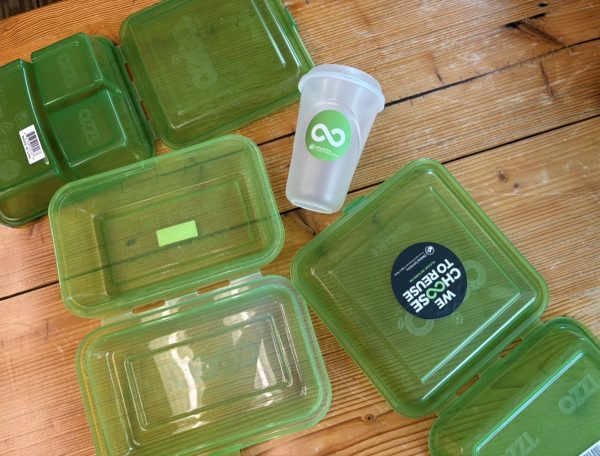Wildcats finding resilience in Puerto Rico
Chico State College of Agriculture students in Puerto Rico in 2021 for a class trip. Photo courtesy of Michelle Borges.
With only five years to rebuild after two severe hurricanes, Puerto Rico’s infrastructure wasn’t ready for Hurricane Fiona as flooding waterlogged agriculture land and power grid for two days from Sept.17-19.
Hurricane Fiona mostly struck the west side of Puerto Rico, which happens to be the agricultural center of the island.
College of Agriculture Professor Thomas Henderson facilitates the annual student trips to Puerto Rico and has been visiting the island since his graduate school days.
“Puerto Rico’s rainfall total annually for any given year is incredibly high, so their soils are used to high rains. Although this [hurricane] was abnormally high,” Henderson said.
“Soils were therefore near saturation for much of the island, and rivers were running at near-normal to above-normal levels for much of the island of Puerto Rico,” NWS wrote.
The island is prone to tropical storms because it lies near the equator where high temperatures and low pressure encourage hurricanes to spawn. Hurricane season in the Atlantic Ocean typically ranges from June to November, according to the National Weather Service.
Henderson said he saw remnants of Hurricane Maria in the upper rainforest, the tallest trees still showed signs of wind damage and bore no leaves.
“But again, that rainforest is so resilient. It’s been experiencing hurricanes for god knows, forever,” he said. “Some of the hardwood trees took a little harder damage, they don’t grow back as fast as the succulent types vines and ferns.”
Hurricane Irma ravaged Puerto Rico with a Category 5 during Sept. 5-7, 2017 and Hurricane Maria followed up less than two weeks later on Sept. 19-21 with a Category 4 hurricane.
Puerto Rico has been a United States territory since 1917 after the Jones-Shafroth Act was passed, which gave the U.S. agency over its finances, politics and economy. Puerto Rico is neither a country or state, and its citizens cannot vote in U.S. elections.
President Joe Biden appointed the Federal Emergency Management Agency on Sept.16 to provide “required emergency measures to save lives” for Puerto Rico.
For the second year in a row after COVID-19, a handful of students from the agriculture department underwent a timely process filled with interviews and applications and were selected to travel to Puerto Rico to be educated on the region.
Chico State senior Michelle Borges who is a public relations intern and student senator in the College of Agriculture was the student-lead for the winter 2021 trip to Puerto Rico for the handful of agriculture majors.
She said the first trip was a huge success after the amount of time allotted to planning it with Henderson.
Borges said the first trip was guided by three learning objectives. The objectives ranged from learning the similarities and differences of agriculture practices between Puerto Rico and California, evaluating efforts of sustainable practices on the island and the agricultural practices that have been influenced by the history of plantations, colonization and government policies.
In 2019, there was an abundance of learning opportunities for the students. They explored the USDA Tropical Research Program, toured Puerto Rico’s Land Grant University and gained more of an understanding about the grassroots efforts for helping the ocean’s ecosystem with a marine biologist.
Henderson said Puerto Ricans were some of the most selfless people he’s met.
“Last time we went to the island, the road and traffic laws were a little different there… Well, we accidentally drove up an off-ramp of one of the major freeways and at the time there were no cars. So, I thought this was kind of a weird way to approach a freeway. We started going and all of a sudden three cars were coming towards us.”
He said the first car coming down made a scene to attract their attention and pulled to the side of the road, and then guided them to their destination.
This winter, another group of 10 students will travel to Puerto Rico from Jan. 4-12 and one of the main focuses will be to tour farming operations and take the knowledge they receive back to California’s industries.
The group will first fly into San Juan and then make their way to El Yunque National Rainforest on the east side of the island. There they will learn about the native tribes who first inhabited the area as well as agriculture in the rainforest.
Student-lead Ryann Vierra says that every year the group helps with a service learning project to benefit the people of the island.
Vierra says they are in contact with the lead agriculture professor at the University of Mayaguez on the west side of the island, where the hurricane affected most. While they don’t know what they will be called upon to do, it will be beneficial to both those of the country and the students visiting.
“She was going to give us some ideas, whether it’s rebuilding houses for the FAA program or helping at animal shelters or homeless shelters, we want to make an impact so wherever their need is that’s where we’ll help,” Vierra said.
Along with helping communities on the island, the group of Chico State students and professor will be going to a USDA coffee inspection where they will perform taste, smell and sight tests on coffee beans.They will also be meeting with Borges Meat, the largest meat processing plant on the island.
“We got a lot of student input, whether that was cultural aspects or agricultural stops that they really wanted to focus on,” Vierra said. “This isn’t just a trip for me and Doctor Henderson.”
As a double major in agriculture business and agriculture education, Vierra said she is very interested in sales and marketing and is hoping to meet with agricultural government officials and learn about trade and policy in Puerto Rico.
Mason Tovani and Melvin Bui can be reached at [email protected].



